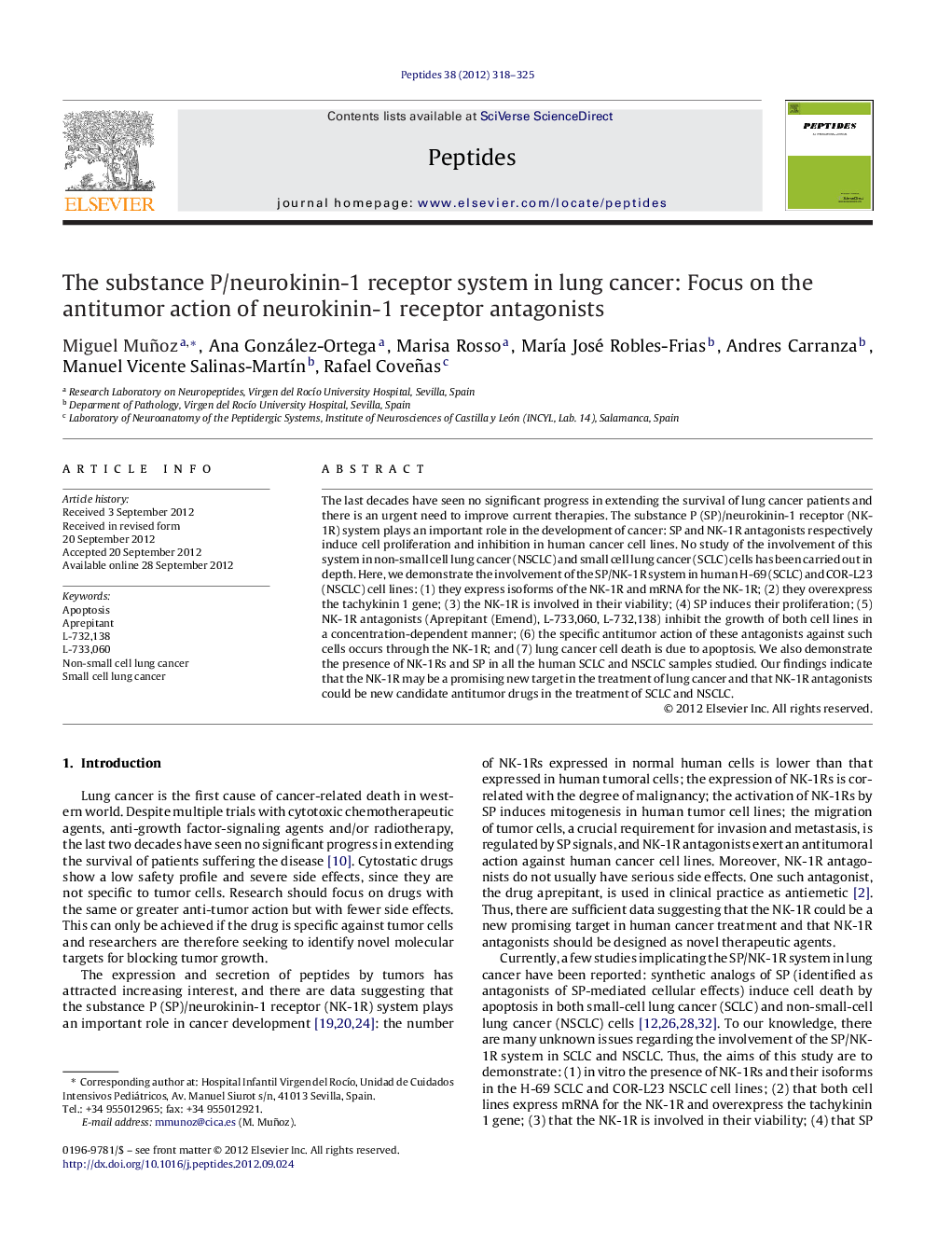| Article ID | Journal | Published Year | Pages | File Type |
|---|---|---|---|---|
| 2006251 | Peptides | 2012 | 8 Pages |
The last decades have seen no significant progress in extending the survival of lung cancer patients and there is an urgent need to improve current therapies. The substance P (SP)/neurokinin-1 receptor (NK-1R) system plays an important role in the development of cancer: SP and NK-1R antagonists respectively induce cell proliferation and inhibition in human cancer cell lines. No study of the involvement of this system in non-small cell lung cancer (NSCLC) and small cell lung cancer (SCLC) cells has been carried out in depth. Here, we demonstrate the involvement of the SP/NK-1R system in human H-69 (SCLC) and COR-L23 (NSCLC) cell lines: (1) they express isoforms of the NK-1R and mRNA for the NK-1R; (2) they overexpress the tachykinin 1 gene; (3) the NK-1R is involved in their viability; (4) SP induces their proliferation; (5) NK-1R antagonists (Aprepitant (Emend), L-733,060, L-732,138) inhibit the growth of both cell lines in a concentration-dependent manner; (6) the specific antitumor action of these antagonists against such cells occurs through the NK-1R; and (7) lung cancer cell death is due to apoptosis. We also demonstrate the presence of NK-1Rs and SP in all the human SCLC and NSCLC samples studied. Our findings indicate that the NK-1R may be a promising new target in the treatment of lung cancer and that NK-1R antagonists could be new candidate antitumor drugs in the treatment of SCLC and NSCLC.
► SP/NK-1R antagonists respectively induces/inhibit proliferation in lung cancer cells. ► NK-1 receptor antagonists induce apoptosis in human lung cancer cells. ► Human lung cancer cells overexpress the tachykinin 1 gene. ► The NK-1 receptor is involved in the viability of human lung cancer cells. ► Substance P and NK-1 receptors are expressed in human lung cancer samples.
